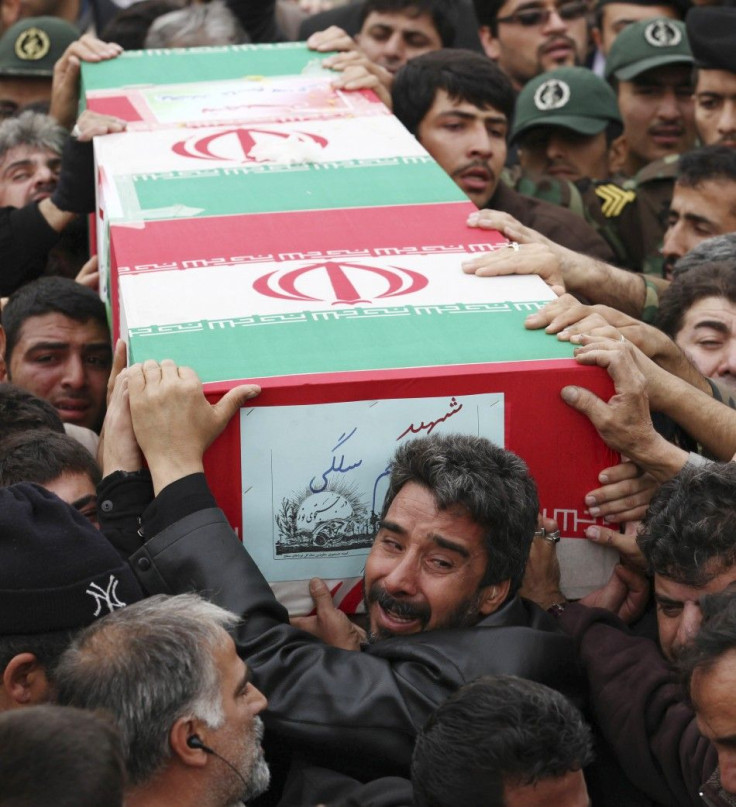Has the War with Iran Begun?

Seventeen soldiers were killed in an explosion at a Revolutionary Guards arms depot in Iran on Saturday, leaving many western critics to wonder: was it an accident, or has Israel initiated their quest to destroy Iran's nuclear program?
The blast is part of an ongoing Middle East narrative surrounding Iran's alleged nuclear weapons aspirations. Last week, the International Atomic Energy Agency (IAEA) delivered its much anticipated report on Iran's nuclear capabilities, concluding that Iran worked to re-design and miniaturize a Pakistani nuclear-weapon design and conducted some activities relevant to the development of a nuclear explosive device, which may still be ongoing.
Israel Prime Minister Benjamin Netanyahu has repeatedly said that a nuclear Iran would be a direct threat to Israeli's sovereignty, and has expressed his desire to launch a pre-emptive strike against Iran. His cabinet reportedly shot down the idea, but that hasn't stopped Netanyahu for pushing a military agenda.
The international community must stop Iran's race to arm itself with nuclear weapons -- a race that endangers the peace of the entire world, Netanyahu said at a cabinet meeting on Monday.
The Prime Minister also believes that the IAEA report only begin to reveal the truth of Iran's nuclear development, saying that Iran is much closer to having a bomb than many nations think.
Only things that could be proven were written [in the IAEA report], but in reality there are many other things that we see, Netanyahu said.
The Iranian base that exploded over the weekend reportedly stored Shahab-3 missiles, which have a 1,200-mile range and are capable of hitting Israel. According to the IAEA report, Iran has tried to make nuclear warheads that can fit on the Shahab-3.
Additionally, one of the soldiers killed in the blast was General Hassan Moqaddam, the man many describe as the architect of Iran's nuclear weapons initiative. In response to the death, Israeli Defense Minister Ehub Barak said may there be more like it.
Iranian officials still attest that the explosion was an accident caused by an ammunition move. However, Time Magazine, Israeli newspapers, and blogs are speculating that Israeli secret service agency Mossad was behind the event.
A covert strike against Iran would not be unprecedented. In 1989, Israel bombed a nuclear facility in Iraq, effectively ending Saddam Hussein's nuclear aspirations. And although they have never officially admitted it, Israel was likely behind the 2007 bombing of a nuclear site in Syria.
A number of countries have warned Israel that an attack on Iran would have dire regional consequences. On Monday, French foreign minister Alain Juppe said that military action against Iran would start an uncontrollable spiral. U.S. Defense Secretary Leon Panetta said last week that a strike would have unintended consequences and could have a serious impact in the region, and it could have a serious impact on U.S. forces in the region.
Iranian officials say they are still investigating the blast.
I have no idea whether this blast was accidental or whether it was sabotage, former head of the national security council and former deputy head of the Mossad Ilan Mizrahi told The Guardian.
But I will say God bless those who were behind it, because the free world should be doing its best to prevent Iran from achieving nuclear military capability.
© Copyright IBTimes 2025. All rights reserved.





















